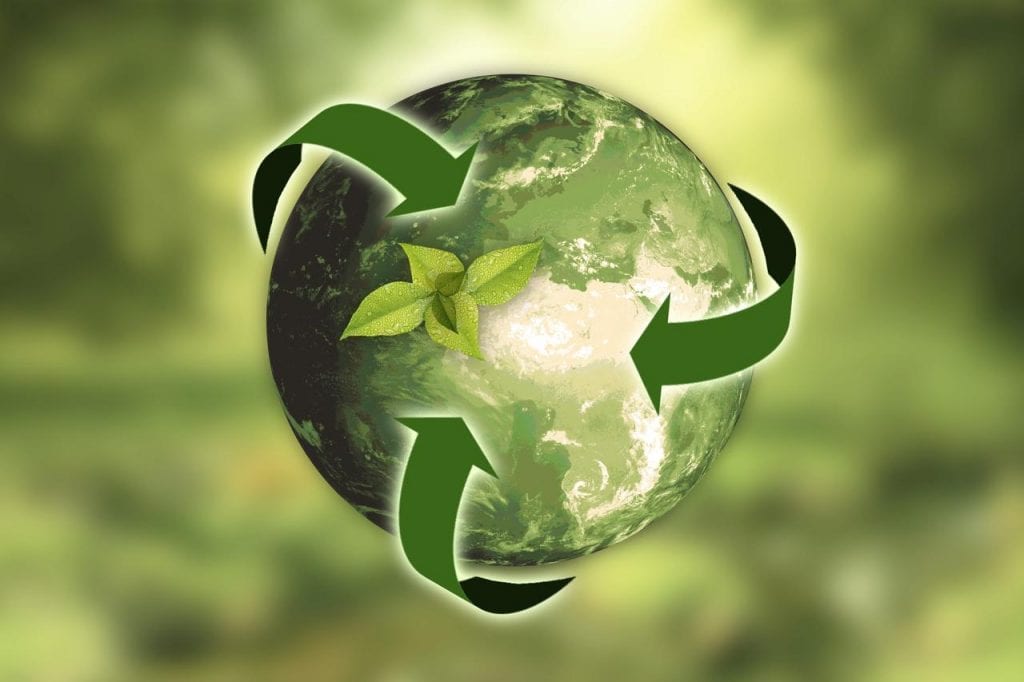Climate Change, Circular Economy and Tourism
The circular model can be the basis to approach the recovery and reactivation of this sector. The Circular Economy emerges as a practical solution to the needs of sustainable tourism, especially from the action of companies in this industry, incorporating sustainability criteria and at the same time generating positive effects that make their business models more profitable. In other words, moving from a linear model to a circular offer makes it possible to simultaneously improve the environment, people’s quality of life and the profitability of tourism companies.

By Marilú Mansilla, Eurochile Technical Assistant of Projects.
The Tourism industry is one of the most affected by the Covid-19 pandemic that the world is experiencing today. Indeed, the confinement measures necessary to control the virus have produced a deep crisis in an industry that, by definition of the World Tourism Organization (UNWTO), is a social, cultural and economic phenomenon related to the movement of people to places that are outside its usual place of residence, for personal or business reasons. Globally, tourism activity fell by 75.1% in 2020 and although it rebounded in early 2021, it continues to suffer from the outbreaks of the pandemic.
However, this health crisis should not blind us to the climate crisis that we continue to experience, and which we must also take responsibility for. In this area, there are challenges that must be addressed by all actors: tourists, hosts and the tourism industry. The industry covers the entire business designed to meet tourist demand and varies strongly depending on the destination. In the Chilean case, the tourism industry is 75% made up of SMEs.
The impacts of tourism on the environment are significant. Before the pandemic, it was estimated that the industry generated 1.5 kilos of garbage per person per day in the destination, in addition to sewage waste, erosion and degradation of the environment due to tourist activities, deterioration of the habitat of the flora and fauna, among others. These are negative externalities that remain in the destination, and if no one takes charge of correcting or mitigating them, the economic, social and environmental damage will be irreversible.
In this context, the current contraction in the tourism industry offers a great opportunity to rethink the way this activity is being carried out. This is especially seen in some destinations that have historically been more saturated. It is necessary to work for the development of sustainable tourism, and in this matter the Circular Economy emerges as a practical solution.
The circular model can be the basis to approach the recovery and reactivation of this sector. The Circular Economy emerges as a practical solution to the needs of sustainable tourism, especially from the action of companies in this industry, incorporating sustainability criteria and at the same time generating positive effects that make their business models more profitable. In other words, moving from a linear model to a circular offer makes it possible to simultaneously improve the environment, people’s quality of life and the profitability of tourism companies.
According to Chile’s National Plan for Adaptation to Climate Change, SMEs are the ones who will have the greatest difficulty in diversifying and adapting their business to climate change. For this reason, this segment of companies should be the priority target of policies and programmes that promote the incorporation of the Circular Economy in their processes, making them more efficient and also capable of adapting to climate change and the requirements of some consumers (especially foreigners) increasingly aware of their water or carbon footprint.
For this, it is necessary to disseminate and facilitate the development of circular business models, circular value chains; promoting manufacturing models, sustainable manufactures, based on the reduction of consumption; the reuse of components, clean production systems and the use of renewable energies. It is no longer enough for companies to incorporate elements such as waste sorting or energy saving systems if they do not apply real changes in their way of operating. We are not expected to achieve zero impact, but rather to incorporate solutions that deliver a positive impact on the system and thereby generate sustainable and circular tourist destinations.
In this work, Europe is ahead of us. In 2015, the European Commission launched the plan “Closing the loop: an EU action plan for the Circular Economy” formally initiating Europe’s transition to a Circular Economy, thereby promoting sustainable economic growth. Thanks to this, several initiatives have been generated from which we have learned; thanks to Eurochile’s contact with business and technology entities from Europe. In our country, the Foundation has worked hard to promote the Circular Economy in Chile, carrying out initiatives such as a technological diffusion program on Circular Economy, specialised seminars and workshops on this subject, and working with SMEs through the life cycle assessment methodology. In addition, the Foundation is in charge of the process of preparing and writing the document of the Roadmap for Circular Economy in the country led by the Ministry of the Environment.
We know that there is still a lot to work on, we do not yet have a specific Circular Economy roadmap for the tourism sector in the country, and many of these concepts are still unknown to most SMEs. However, we are under the unique possibility of, with the support of entities such as Eurochile and the commitment and effort of companies and public entities of national and regional development, to advance on this route and transform tourism into an increasingly efficient industry, sustainable and circular.
